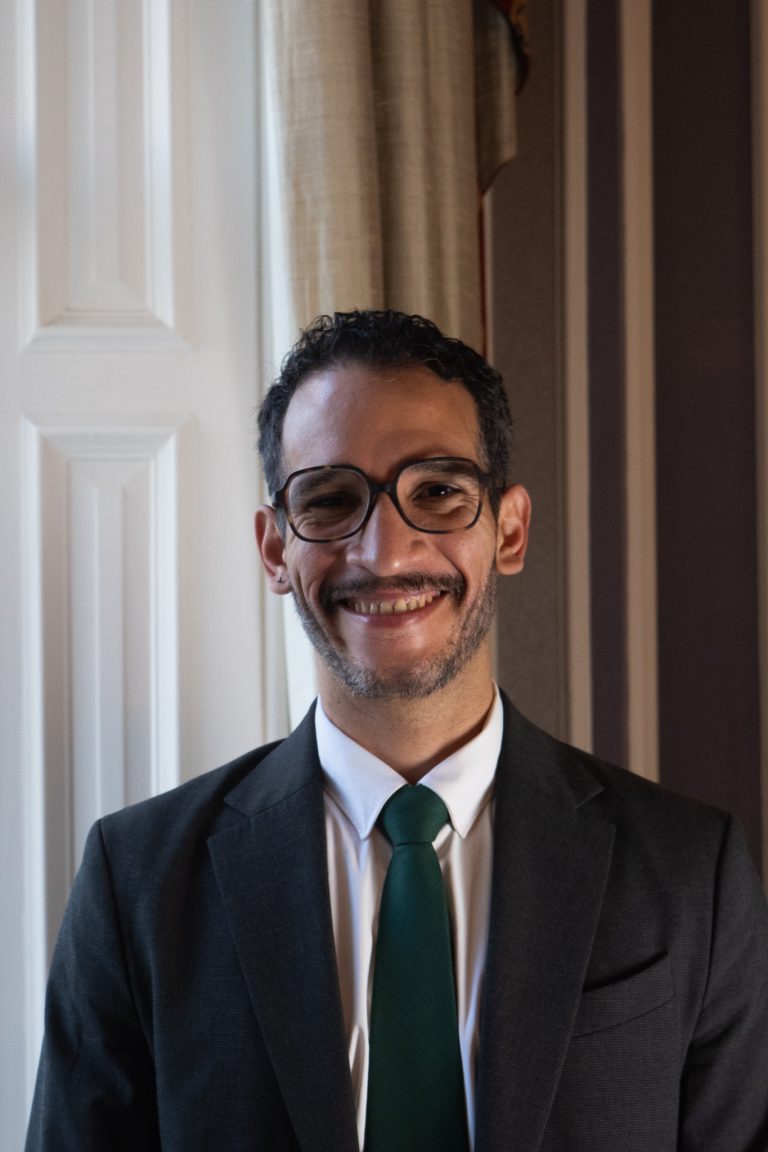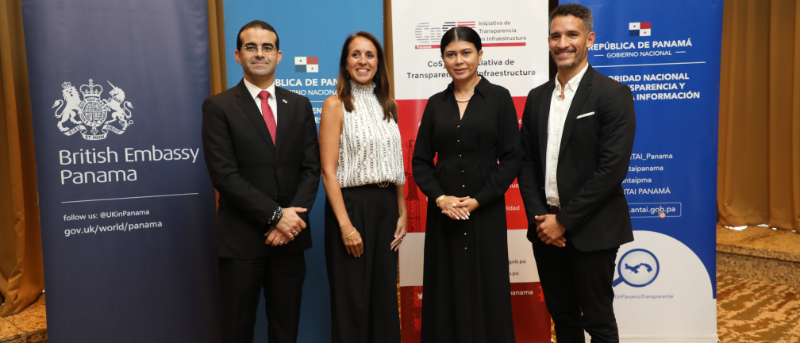By Manuel Gonzalez Caballero
In regions of fragile governance and shifting politics, advancing infrastructure transparency is more than an operational or policy task – it is an act of diplomacy.
At CoST – The Infrastructure Transparency Initiative – we have found a trusted ally in the British embassies across Latin America whose support has consistently amplified our reach, credibility, and impact.
This is not by chance.
Our roots as an FCDO-supported initiative provide a natural pathway to collaboration. Yet it is through our members’ strategic engagement, consistent communication, and shared goals that we have cultivated meaningful partnerships with the British embassies across Latin America such as Panama, Colombia, Argentina, Guatemala, El Salvador and Costa Rica.
The power of diplomacy
What continues to strike me in our work across Latin America is how essential the British embassies have been. From my experience, their presence and influence are simply un-matched when it comes to opening the right doors, building genuine trust, and encouraging open multistakeholder dialogue. And it goes beyond visibility. They’ve helped provide platforms of influence and financial collaboration that have made a tangible difference – not just in launching platforms or tools, but in legitimising and sustaining them through political and institutional buy-in.
In Panama, I saw first-hand how the support of the British Embassy made the launch of the first Infrastructure Transparency Index (ITI) possible. That wasn’t just a technical milestone; it was a regional wake-up call by setting a new standard for what transparency in public infrastructure could look like. The Embassy’s support gave us the kind of legitimacy and visibility that’s hard to build on your own.
In Colombia, I’ve been part of the journey with Bogotá’s Multi-Stakeholder Group, where the Embassy’s role as an official observer brought more than formality; it brought confidence. The Embassy’s presence sent a clear signal that this work matters at the highest level. And that credibility has had ripple effects; inspiring conversations in other cities about how to replicate the model.
What’s powerful about these partnerships is that they haven’t been accidental. They’ve been built deliberately and patiently. Through every formal invitation we’ve sent. Every shared event we’ve hosted. Every aligned message. Every update. That kind of relationship building takes time, but when it clicks it creates a platform that’s bigger than the reach of any one organisation.
Quiet diplomacy, transformational impact
Our strategy in Latin America has demonstrated that British embassies are not just partners; they are enablers of systemic reform. Their presence unlocks coordination across institutions, brings civil society to the table, and reframes transparency as national development – not mere compliance.
From my own experience now having engaged across multiple British embassies in Latin America, I’ve come to deeply appreciate not just what they support—but how they support it. Their approach is never heavy-handed. Instead, it’s rooted in listening, in showing up, and in helping connect the dots between local needs and global priorities. Whether it’s a discreet call to open dialogue with a hesitant government official, a timely introduction to an international donor, or simply making space for civil society voices in a high-level meeting – the impact is often quiet, but transformational. At CoST we operate in the same way; always locally-led.
I’ve witnessed how just one signal of backing from an embassy can shift the entire tone of a room, unlock doors that had remained shut for years, and give a project the credibility it needs to move forward. In El Salvador, the Embassy’s support helped introduce assurance methodologies in a highly sensitive political environment, where other avenues of entry were limited.
Scaling partnerships for global impact
Our recent guidance note for CoST members entitled “Engaging the British Embassy in your country” (available in both English and Spanish) distills this partnership approach between CoST and British embassies into a set of practical steps. It outlines how CoST members can map embassy priorities, pitch aligned proposals, and leverage UK government funding opportunities.
But the lessons and practical steps set out in this guide go deeper: this model of co-operation is replicable across international partnerships. Just as we have built bridges with British embassies across Latin America, the next phase of our work must focus on replicating this model further globally as well as reinforcing our co-operation frameworks with other multilateral organisations such as the World Bank and UN agencies. These institutions are key to scaling CoST’s tools, influencing policy at higher levels, and supporting our local allies in their efforts to improve infrastructure governance.
Building the future together
At CoST, we are more than a transparency initiative. We are a global community committed to better infrastructure for all. And we know that no single actor can achieve this alone. This is why partnership and diplomacy are at the heart of what we do.
To our partners – existing and future – we extend this invitation: Let us strengthen our cooperation models, multiply our platforms for dialogue, and support our local allies with the resources, visibility, and legitimacy they need to drive real change. Together, we can make transparency in infrastructure not just a principle, but a global standard.
Our “Engaging the British Embassy in your country” member guidance is now available for download in English and Spanish.

Manuel Gonzalez Caballero is Senior Regional Manager for LATAM at CoST where he leads on the CoST Latin America strategy, identifying opportunities for CoST within the region and providing technical support and advice to the region’s country managers and multi-stakeholder groups.
